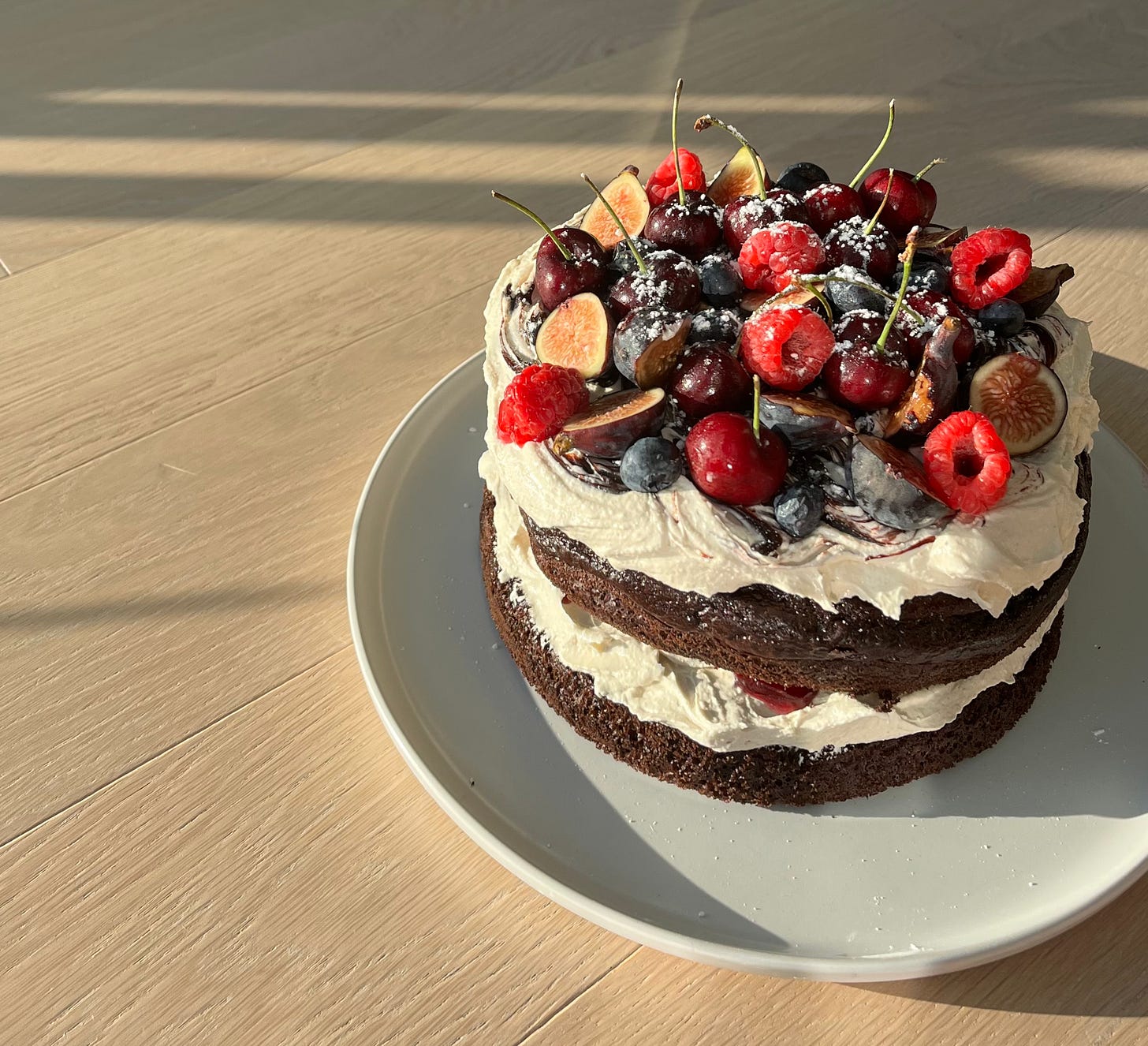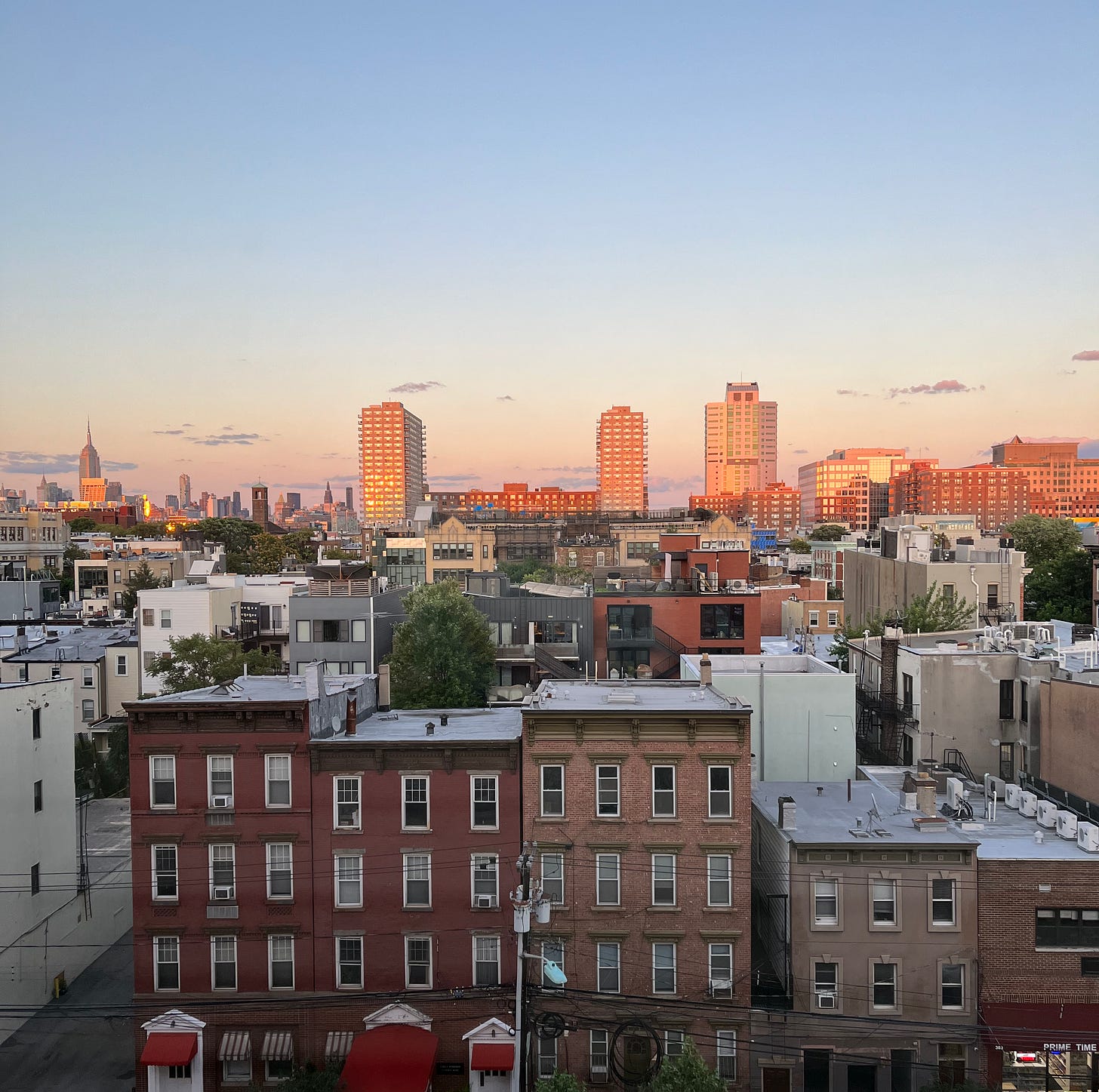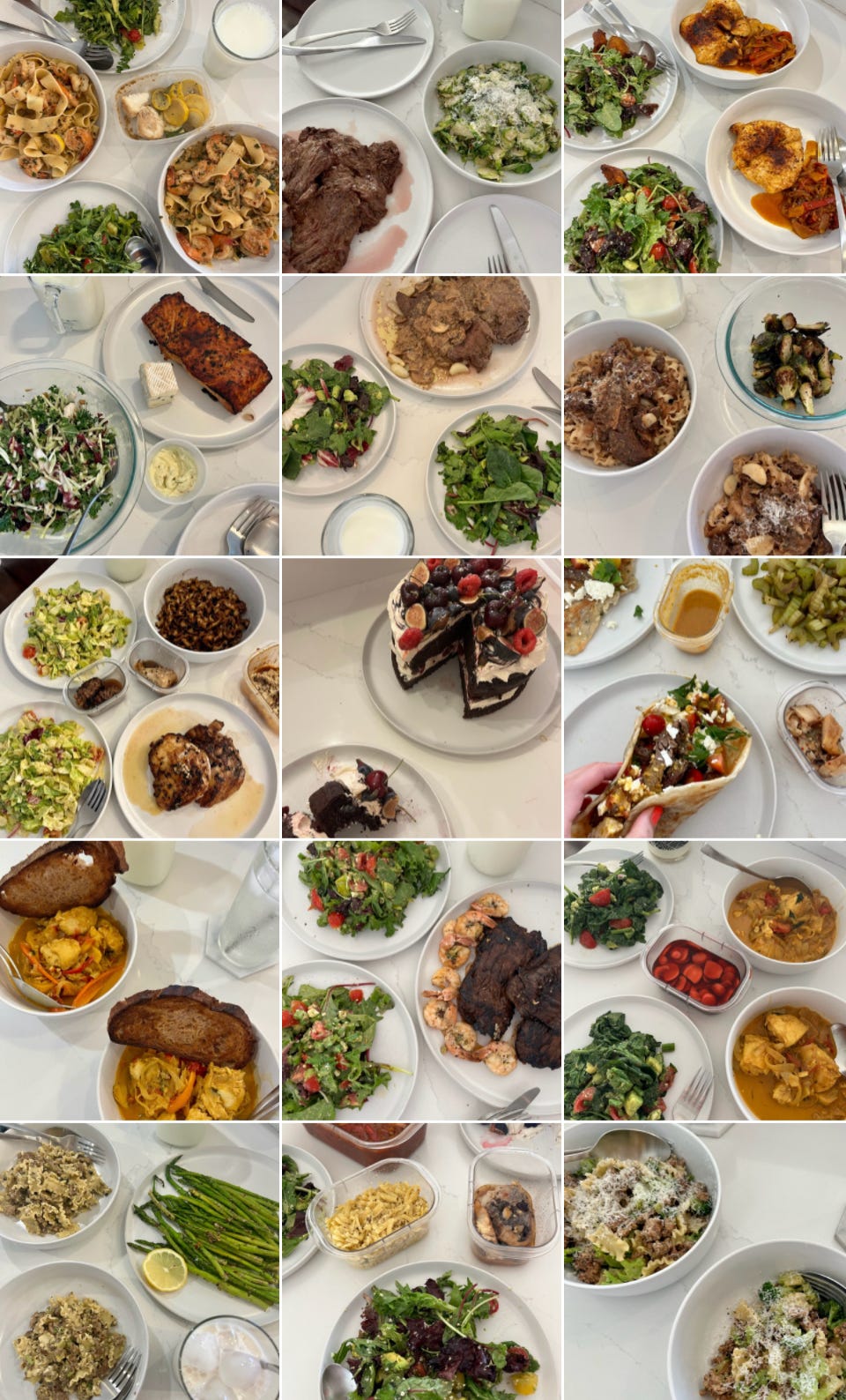Five Sundays ago.
“I’ll be back in half an hour. We can have dinner then.” Alex promised.
He was headed to Home Depot. We wanted to get a bigger planter for our Bird of Paradise, which has quickly outgrown its nursery pot in our new solarium.
I stayed home with dinner baking in the oven.
45 minutes passed. Alex called.
“Hello! I broke my leg! Can you please come over?”
He was rushing home on an electric scooter at full speed, planter in hand, and fell over a pothole on Washington and 3rd. I turned off the oven and ran out the door. An ambulance came. Someone is feeding him water. His right leg clearly deformed. EMTs carried him onto the ambulance and sent us to the ER.
Ankle dislocation. Pilon fracture. Two surgeries minimum. External fixator delta frames to straighten tibia and fibula. Wait another week for the second surgery. Full leg cast. Learn to walk again in ten weeks.
They needed Alex to stay overnight for emergency surgery, and I could not stay. Alex undressed to change into a surgical gown. A nurse came in with a clipboard to catalog Alex’s personal items. Shirt. Underwear. Shorts. Left shoe. Wallet. Phone. Keys.
“You don’t need a wallet here.” The nurse said. Alex handed me his wallet.
This is the way we came into the world, and the way we will leave: bare. In the beginning and the end, we are all the same.
“What’s that?” The nurse pointed to the large planter.
I took Alex’s wallet and right shoe home, along with the planter.
I repotted the plant the next morning. It looked grand - so much room to grow into.
Most of us were born whole, thinking we are perfect, we will be perfect, and we will always be perfect. In fact, every day, we become more and more broken, until our eventual demise.
— from my journal in February 2022, post-ankle surgery
Alex likes speed. He always prefers driving over biking and biking over walking. Alex is confident. Always healthy, never injured, never caught Covid even when I had it. Alex is as invincible as I feel vulnerable, as dauntless as I am cautious. Just as Mary Oliver wrote in Long Life about her partner Molly Malone Cook: “if you are too much like myself, what shall I learn of you, or you of me? The touch of our separate excitements is another of the gifts of our life together.” Until now, I was always the one needing care and he was my caretaker. That’s just the way things were.
When I broke my ankle in senior year of college, Alex became my live-in nurse and cheerleader. He ran all errands and cooked every meal. I couldn’t stand to shower so Alex bathed me. I couldn’t walk so Alex took me out on long scenic drives down the Pacific Coast Highway, to Pacifica, Half Moon Bay, and Carmel-by-the-Sea.
It seemed unfathomable to me that Alex is the one needing care now. I still don’t even know how to drive.
Nurses wheeled Alex out of the OR from his first surgery. I sat by his bedside and fed him jello. This man who always towered over me was as delicate as a baby. He told me the spoonfuls are too big as he struggled to keep everything in to swallow. I wiped his mouth and gave him smaller bites.
Visiting hours elapsed. They asked me to leave. I returned home and made sure to give the plant a good watering.
It feels like someone is repeatedly stabbing my ankle with a knife. I feel the force, pressure, and sharpness of each jab. Again and again.
— from my journal in February 2022, post-ankle surgery
Who is “I” in “I hurt”? The one who inflicts the pain or the one who suffers it? —Trust, by Hernan Diaz
The fires are raging. His bones held together by pins.
It hurts so much. Alex whispers next to me in bed, finally home after his first surgery.
I know, honey. I know.
There is nothing more private than pain. It can only involve one. But seeing your loved one in pain is a different torment: for there is nothing you can do to help alleviate the agony, you cannot take their place. And what cruel irony it is for him to have the same scar as mine on the right ankle, for us to have lived through the same double pain.
Painkillers. Oxycodone. Tramadol. Meloxicam. Gabapentin. Tylenol. Aspirin. Muscle weakness. Alex doesn’t have the strength to lift his leg so I carry him in and out of bed. Cold chills. Fevers. Night sweats. Pain wakes him from sleep every few hours. When the pain is just too much to bear, he wraps his arms around me and quietly weeps.
I can’t do anything. I don’t want to be a burden to you. You should go swimming. I ruined the summer. What about the August trip we planned to see the fjords in Norway, to the Danish island of Ærø?
I know what it feels like to need to be cared for. To feel like a burden, an inconvenience, a monster unworthy of love. But Alex has always loved. Being in love is knowing you can be cared for in someone’s arms while wide awake at 3am in burning pain, because you were once those caring arms.
Don’t worry. I’m here. Everything will be okay. It just takes time and patience.
In the quiet morning hours before Alex wakes from pain, I tend to the Bird of Paradise in the solarium. I dust and mist its leaves. I water. This voracious thing is growing like crazy. The once tender new shoots are now leathery wide blades, all sprawled out reaching for the light.
“A garden is never finished. In that sense it is like the human world and all human undertakings.” —Karel Čapek
Alex and I met on the very first day of Stanford in a mandatory freshmen philosophy seminar. Among the many assigned readings in the class is The Gardener’s Year, a quaint gardening manual published in 1929 by Czech author Karel Čapek. It was also a book Alex didn’t bother to purchase - I lent him mine. So began our friendship, which over the years grew and evolved into this partnership we share today.
While most of my memories of classes from this time have faded into a fuzzy blur, I never forgot the seminar on The Gardener’s Year. I had no intention of gardening then, but in following the gardener’s laborious rituals throughout the book I understood it as a tremendous act of caretaking.
We read The Gardener’s Year alongside the Roman fable of Cura (Care), who created the first human from clay and can keep her creation as long as it lived. Heidegger observed a double sense of cura, which refers to “a care for something as concern, absorption of the world, but also care in the sense of devotion.” Cura, and care, is Heiddeger’s Dasein, a being engaged in a world, aware and confronting the paradox of personhood, mortality, in relationship with others while being ultimately alone with oneself. Care holds humanity.
“The point is that in almost every instance of our lives, our social lives, we are, if we pay attention, in the midst of an almost constant, if subtle, caretaking.”
Poet Ross Gay wrote in The Book of Delights, his lyrical essayettes where solace and bliss coexist with tragic deaths, illnesses, racism, and horror. Gay gardens throughout the book too, gushing over the “delirium incited by lily blooms” and often “obliges, despite [his] obligations, getting back on [his] hands and knees, [his] thumb and forefinger caressing the emergent things free, all of us rooting around for the light”.
The morning after a particularly pain-filled night, I saw a new leaf bud emerge from the Bird of Paradise’s central stem. I watched it grow taller with every passing day, to the verge of unraveling - a precious green with the least hint of yellow.
“The only real things in life are food and love, in that order.” — David Hockney
There are two ways to say “I love you” in Italian. There’s the romantic ti amo, and then there’s ti voglio bene: I want your good, I want you to be well. The former is passion, the latter is care.
As Alex began to eat solid food, my realm of care extended more seriously into the kitchen. Caressing gorgeous cherry tomatoes on the vine to be drizzled with olive oil and sprinkled with flaky salt. Massaging kale with lemon juice. Tending to a simmering pot of chicken paprikash. Spreading camembert and over-ripe figs onto tartines. Gently browning butter.

In the exact sense of the saying “I love you, I want us both to eat well” by
of , I realized Dasein and self-care are inherent in ti voglio bene: cooking for Alex became a tremendous joy for me. I reveled in the beauty of peak summer produce and having full confidence over our daily nourishment. I delighted in the challenge of developing new recipes. I relished the ritual of setting every meal out on the dining table, even though Alex can sometimes only make it through a few bites before the pain of sitting down becomes unbearable and urges him back to bed.Care may be labor, but what a joy it is to have something and someone you want to labor for.
The days are long but the weeks are short.
With every new morning and meal, I witnessed fresh buds from the Bird of Paradise emerge and spiral into glossy new leaves, each mightier than the last. Alex can get in and out of bed by himself now. Incisions closed. Fevers subsided. Pain persists but wanes a little each day. Physical therapy starts next week.
I thought it apt to end with this passage from The Gardener’s Year:
















